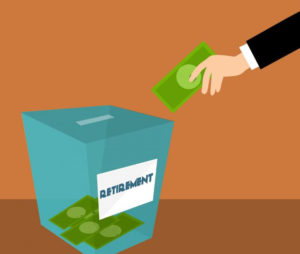Bridgeton Global Financial is all about helping you to safeguard your future – and the funds that will make the future happen. Financially savvy insurance policies and investment opportunities are vital to ensuring that you’ll have the money that you need, when you need it. Our team of expert investors and insurance agents are dedicated to connecting you to the insurance and investment resources that will drive your bottom line and fatten your bank accounts.
Personal and business finances provide a very tricky minefield that the average person just can’t successfully navigate on their own. That’s why we’re here! With our help, you will make the right investment decisions for your life and onward.
Tips For Cheaper Car Insurance
Car insurance rates have been on the rise due to various reasons such as the rising costs of vehicles. Vehicle owners are going through a tough time because they have to deal with high costs of living and high insurance rates, which makes them worse off. Such situations have caused car owners to try and find ways to minimise car insurance costs in a bid to save more money. Shopping around for car insurance providers is advisable because it allows you to know what rates are being used in the market. The price of your car insurance is usually dependant on many factors, such as the car model, the type of cover you choose, and the purpose of that car. For this reason, the premiums charged may differ, depending on the insurance provider. Most drivers don’t take their time to do their research on the current market rates but rather, stick with their current provider, who may be charging exceptionally high rates. Why pay higher premiums when you can spend less for the same service? There are several tricks one could employ to reduce their financial burden. If you are planning to purchase a car, it is important to understand the several factors that might cause you to pay higher premiums and look for ways to minimise the insurance costs. Discussed are some tips for you.
Shop Around
 The first step to getting affordable insurance rates is through shopping around. If you choose to stick to the few car insurance providers that you are aware of, you may never know whether the other providers that are equally good. By shopping around, you get to know the various players in the insurance industry, the service they provide, and the prices they charge. You don’t have to focus on the most popular insurance providers. Go with an open mind, and you might get yourself a great deal with the not so popular providers. When checking for prices, you could make use of an online comparison service. You only need to input your details and confirm the rates afterwards. Note that while some policies may seem cheaper than others, they might not have extensive coverage. Once you get reputable insurance providers that charge affordable prices, go ahead to enquire about the details of their covers. In most cases, the cheapest policies tend to cover fewer components and may limit your compensation amount, in case you make a claim. While shopping around, make sure you ask for recommendations from friends, colleagues, and family.
The first step to getting affordable insurance rates is through shopping around. If you choose to stick to the few car insurance providers that you are aware of, you may never know whether the other providers that are equally good. By shopping around, you get to know the various players in the insurance industry, the service they provide, and the prices they charge. You don’t have to focus on the most popular insurance providers. Go with an open mind, and you might get yourself a great deal with the not so popular providers. When checking for prices, you could make use of an online comparison service. You only need to input your details and confirm the rates afterwards. Note that while some policies may seem cheaper than others, they might not have extensive coverage. Once you get reputable insurance providers that charge affordable prices, go ahead to enquire about the details of their covers. In most cases, the cheapest policies tend to cover fewer components and may limit your compensation amount, in case you make a claim. While shopping around, make sure you ask for recommendations from friends, colleagues, and family.
Security
Status Of The Driver And The Car
 If the car belongs to a company or is meant for business purposes, you might be required to give details of your driver. This is mostly concerning his age and experience. Generally speaking, young and inexperienced drivers are considered riskier as compared to old and experienced drivers. If you mention that you have a young driver, you might be charged higher premiums as opposed to if the driver was older and more experienced. Also, female drivers are perceived to be more keen on the roads and may cause you to be charged lower premiums. If you have one driver, consider adding another one, and especially a more experienced one. This is because experienced drivers are considered less risky by the insurance firm. You must also check the status of your car before considering comprehensive coverages. Note that if the vehicle, for example, is worth less than ten times the premium, there is no value in purchasing insurance coverage. For you to get value for your money, ensure you visit banks or auto dealers who can help you determine the value of your car. Ensure you do this anytime you want to renew your coverage contract.
If the car belongs to a company or is meant for business purposes, you might be required to give details of your driver. This is mostly concerning his age and experience. Generally speaking, young and inexperienced drivers are considered riskier as compared to old and experienced drivers. If you mention that you have a young driver, you might be charged higher premiums as opposed to if the driver was older and more experienced. Also, female drivers are perceived to be more keen on the roads and may cause you to be charged lower premiums. If you have one driver, consider adding another one, and especially a more experienced one. This is because experienced drivers are considered less risky by the insurance firm. You must also check the status of your car before considering comprehensive coverages. Note that if the vehicle, for example, is worth less than ten times the premium, there is no value in purchasing insurance coverage. For you to get value for your money, ensure you visit banks or auto dealers who can help you determine the value of your car. Ensure you do this anytime you want to renew your coverage contract.
Mileage
If you want to get cheaper insurance deals, it is vital that you check your mileage coverage. If you use your car to and from work daily, you will have to pay higher premiums as compared to someone who uses their vehicle fewer times. You are advised to consider using mass transit to cover some of the miles in a day. The insurance provider assumes that you are exposed to potential risks anytime you are driving. Hence, covering fewer miles in a day reduces your chances of getting accidents, among other things. It is also good to ask the insurance provider about their mileage thresholds so that you may be able to plan yourself. It is also essential to inform the insurance provider about the uses of the car to avoid future disagreements especially when you make a claim.Remember also to shop online for international insurance providers when looking for the cheapest car insurance as they can sometimes offer better deals than companies in your own country.
Getting car insurance is unavoidable. It is almost impossible for you to operate on the busy roads without insurance because the traffic officers will always ask to see your car insurance. You, therefore, need to have one at all times. Since car insurance costs are not cheap, one needs to know several tricks to use to help them secure more affordable premiums. Consider the tips above.
What Are The Benefits Of Investing In Pension Schemes?
Although pension schemes may seem somewhat complicated, at their core, they are very basic and simple. It is important to understand what advantages you have by placing money in a pension scheme. For many, a State Pension is simply not enough to live on during retirement, but it can create a solid financial foundation.
UK’s Pension System
The pension system in the United Kingdom was initially laid down after World War II. The State Pension was put into place as a way to offer a guaranteed retirement income to those who wanted to leave their jobs after reaching the age of 65. However, over the decades, a number of laws have changed the pension system and these laws have left retirement savers searching through endless pages of information and complex rules.
 In a nutshell, the pension system is a tiered system. The first tier (Tier 1) is paid out by the government and it offers everyone with a guaranteed State Pension. This State Pension is a minimum retirement income. Although there is an average amount that is paid out, the actual amount that a retirement saver will receive will depend on how much they contributed to the system when they were working.
In a nutshell, the pension system is a tiered system. The first tier (Tier 1) is paid out by the government and it offers everyone with a guaranteed State Pension. This State Pension is a minimum retirement income. Although there is an average amount that is paid out, the actual amount that a retirement saver will receive will depend on how much they contributed to the system when they were working.
It is important for workers to be mindful of the fact that the eligible age to receive State Pension increases regularly. For example, between April 2016 and December 2018, the minimum retirement age for women was 65. However, between December 2018 to October 2020, the minimum retirement age for both men and women is 66. The retirement age for men and women from 2026 to 2028 is projected to be 67.
Tier 2 of the pension system was removed in favour of a pension that offers a flat rate for new retirees. This flat rate is funded by the state and it is topped up with various other payments that have changed throughout the years. The two types of pension schemes popular in this tier are the SERPS (State Earnings Related Pension Scheme) and the older graduated pension.
Tier 3 includes both workplace and private pensions that take in the pensions that are not covered under the State Pension. These types of pensions have been designed to redistribute the income of a retirement saver when they get older. This means that these funds can be distributed to retirement savers once they are 55 years old.
The pension schemes included in this tier are:
- Expat pensions (QROPS) Qualifying Recgonised Overseas Pension Scheme
- Self-invested personal pension (SIPP)
- Auto-enrolment pension scheme
Why You Should Save Money For Retirement
Were you aware of the fact that the maximum amount of State Pension is far less than what most people in the UK want to retire on? For the 2019-2020 year, the State Pension is around 169 GBP a week. That equals a little over 8,700 GBP for one year.
Unfortunately, there are millions of people who are not saving enough money to enable them to enjoy a comfortable living once they retire. If you are someone who has not started saving money for retirement, there are a few options available to you. You can choose to:
- Work longer and retire later
- Begin to save more money
- Make adjustments on your retirement plans based on how much you will be able to afford once you retire
In other words, it is important to start looking at alternatives to give you the financial cushion that you will need once you are no longer working. This way you will not be solely dependent on State Pension.
Even if you qualify to receive the full State Pension at its current rate for the tax year of 2019 to 2020, this is likely far below what you will need so you can comfortably retire.
What Are The Benefits Of Saving Money In A Pension?
 After you have decided that you are going to place some of your income aside for retirement, you will need to decide which scheme you are going to choose.
After you have decided that you are going to place some of your income aside for retirement, you will need to decide which scheme you are going to choose.
Pensions offer a range of important benefits that will help to increase your savings quicker than other types of investment schemes.
As mentioned, a pension is nothing more than a long term savings plan, but it is a plan that offers tax relief. By getting tax relief on your pension, the money that would have gone towards taxes paid to the government stays in your pension.
If you are saving your money through scheme referred to as defined contribution pension scheme, the contributions that you make are invested so they increase whilst you work. These contributions then serve as your income once you are ready to retire.
Tax Relief And Your Pension Pot
After your income has gone over a certain level, the government will begin to tax your earnings. You are able to see how much money the government has taken by looking at your payslip after each pay period. If any money is placed into a pension scheme, it cannot be used to pay taxes.
This means that in addition to the money that you are placing into your pension scheme, some of the money that would have been used for taxes is placed in the pension pot instead. This is known as ‘topping up’ your pension.
If you take out a stakeholder or personal pension scheme, as well as some workplace pension schemes, you are able to get relief on your taxes when it comes to your personal contributions. This is true even if the income you make is considered low. Keep in mind, this does not apply to many workplace schemes.
Lump-Sum That Is Tax-Free
Typically, retirees are able to take up to 25% of their pension savings in a lump sum. This money is not subject to tax.
For those who have built up their pension pots with a defined contribution scheme, you have the chance to use what’s left in the pot any way you want to once you are 55 years old. This does not apply to salary pension schemes.
Pension schemes are designed to make a person financially comfortable once they have retired. There are many other pension schemes that can be used in combination with State Pension so you can enter your retirement years stress-free.
What Insurance Policies Do You Need to Protect Your Business?
Your business, just like your home, your health, your life and your vehicle, needs to be adequately insured to provide you the best protection against the unforeseen. If your business isn’t properly insured against devastation and liability, you could end up in a serious jam. Many businesses shutter their doors completely after an expensive incident that they were forced to pay for out-of-pocket. But there are many different types of insurance policies that offer different levels of coverage for your business. Which ones should you seek out for your business? Continue reading to find out.
Property Insurance
 This is easily one of the most essential forms of insurance that is used to protect businesses. Whether the business owner owns or leases the space that their enterprise occupies, property insurance is 100% vital to protecting it. Property insurance covers damages related to catastrophes such as:
This is easily one of the most essential forms of insurance that is used to protect businesses. Whether the business owner owns or leases the space that their enterprise occupies, property insurance is 100% vital to protecting it. Property insurance covers damages related to catastrophes such as:
- Fire
- Vandalism
- Theft
- Storm damage (winds, rains, hail)
If you live and work in an area where flooding and earthquakes are a reasonable concern, you will likely need to pay extra to get this type of additional coverage. Most standard property insurance policies will not cover earthquakes or floods.
Errors and Omissions Insurance
Otherwise known as professional liability insurance, errors and omissions insurance protects the business in the event of someone being harmed due to negligence on the business’ part. This type of insurance is just as important as property insurance, but it can be trickier to get exactly the type of coverage you need. Each industry has its own set of concerns, so you need to address those matters with the insuring agent you’re working with.
Vehicular Insurance
Generally speaking, work vehicles cannot be adequately covered (or covered at all) under a personal auto insurance policy. That’s why vehicle insurance for workplace vehicles is so important. At the very least, business vehicles should be insured to cover third-party damage (liability). But a comprehensive insurance policy will completely insure the vehicle to the point of replacing or repairing it in the event of an accident.
Worker’s Compensation
If an employee becomes injured or dies while on the job, worker’s compensation saves the business owner from having to shell out medical and other expenses out-of-pocket. If you have even a single employee working for your business, you need to purchase a worker’s compensation insurance policy to protect them and/or their loved ones in the event of a workplace accident. Every enterprise that hires others should have this, even if the job seems low risk.
Business Interruption Insurance
If a natural disaster, for instance, makes it impossible for you to conduct business, business interruption insurance will cover the lost funds that you and your employees wouldn’t get if you weren’t protected by insurance.
What are Some Low-Risk Investment Strategies That Yield High Rewards?
“More risk, more reward” is a mantra used often in the world of personal and business finance – but that isn’t always true. You can, in fact, make a relatively low-risk investment and receive a big reward. That is, of course, providing that you do so wisely and make the correct investment moves to begin with. Below, we’ll highlight three low-risk, high reward investment strategies that anyone can make if they’re serious about putting their money to work for them.
Preferred Stock Purchases
 Preferred stocks function like bonds in a lot of ways, while still trading like you’d expect from any stock. The dividend rate is about 2% more than CDs pay out, and they trade within a few dollars of the initial price of the stock. Additionally, preferred stocks pay out monthly or quarterly, with the possibility of capita gains treatment. They can be sold at any time without a penalty and typically only carry tax or market risk.
Preferred stocks function like bonds in a lot of ways, while still trading like you’d expect from any stock. The dividend rate is about 2% more than CDs pay out, and they trade within a few dollars of the initial price of the stock. Additionally, preferred stocks pay out monthly or quarterly, with the possibility of capita gains treatment. They can be sold at any time without a penalty and typically only carry tax or market risk.
Preferred stockholders can expect to be paid out earlier than others who have purchased stock with the company, should the company become liquidated.
Utility Stock Purchases
Like preferred stocks, utility stocks pay out 2% to 3% more than CDs or treasury securities. These are common stocks that come with voting rights and remain relatively stable over time (though not as stable as preferred stocks). They also function like bonds in many ways and can be traded at any time without the risk of paying any type of penalty fee.
The risk tied to utility stocks is only slightly higher than preferred stocks. They can also be taxed for their dividends and capital gains.
Fixed Annuities Options
Fixed annuities are a great move for those who are serious about saving up for retirement and don’t want to be bothered by the crushing pressure of high-risk investment strategy. There are several benefits of choosing to invest in fixed annuities, including:
- Being able to store a limitless amount of funds that is tax-deferred until the time of retirement.
- Being backed by the financial strength of the life insurance companies that offer the fixed annuities.
- A rate of 0.5% to 1%. This is less than you’d receive with utility or preferred stock options, but the risk is lesser. So, many people view this as an even exchange.
Unfortunately, fixed annuities do have penalties associated with early withdrawal.
Are you worried about financial insecurity sometime in your future? Investing wisely can safeguard your future against catastrophe, but this isn’t as easy as it sounds. Bridgeton Global Financial wants to help you to make the right investments and insurance decisions to ensure your financial well-being for life. Reach out to us today to get started.





